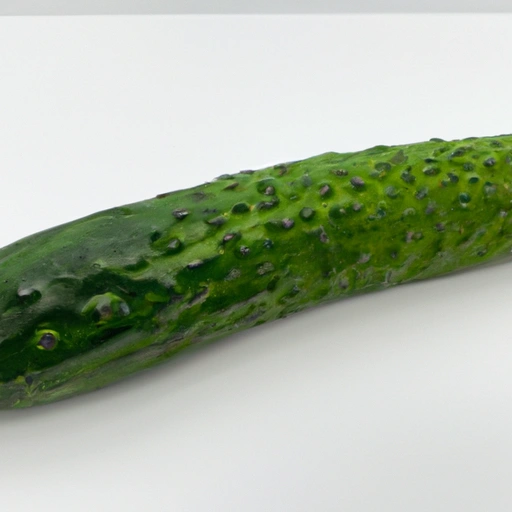English Cucumber
Description

The English cucumber, also known as a seedless or hothouse cucumber, is a variety of cucumber that is typically longer and slimmer than the traditional American cucumber. It is known for its thin skin, minimal seeds, and crisp texture, which makes it ideal for consumption without peeling. English cucumbers are usually sold wrapped in plastic to maintain freshness and can be up to 12 to 14 inches (30 to 35 cm) in length. They are a staple ingredient in many kitchens across Europe and America and are used in a variety of dishes due to their refreshing taste and versatility.
Common uses
English cucumbers are commonly used in fresh salads, sandwiches, and as garnishes. Their crisp texture and mild flavor make them an excellent addition to various dishes, including cold soups like gazpacho, sushi rolls, and canapés. English cucumbers can also be pickled or used in relishes and chutneys, providing a crunchy texture and fresh taste.
Nutritional value
Calories
English cucumbers are low in calories, with an average cucumber containing approximately 45 calories (188 kJ) per whole cucumber.
Protein
They provide a modest amount of protein, with roughly 2 grams (0.07 oz) per cucumber.
Fat
English cucumbers are virtually fat-free, with less than 0.5 grams (0.02 oz) per cucumber.
Carbohydrates
The carbohydrate content is low as well, with about 11 grams (0.39 oz) per cucumber, the majority of which is dietary fiber.
Vitamins
They are a good source of vitamin K, providing over 50% of the recommended daily value in one cucumber. They also contain vitamin C and vitamin A, albeit in smaller amounts.
Minerals
English cucumbers contain several minerals, including potassium, magnesium, and silica, which is beneficial for skin health.
Health benefits
English cucumbers offer several health benefits. They are hydrating due to their high water content, which helps in maintaining good hydration status. The dietary fiber present aids in digestion and supports gastrointestinal health. The potassium content may contribute to cardiovascular health by helping to maintain normal blood pressure levels. Additionally, the antioxidants found in cucumbers can help reduce oxidative stress and inflammation in the body.
Potential risks
While English cucumbers are generally safe to eat, individuals with allergies to cucurbits (the plant family that includes cucumbers, melons, and squash) should avoid them. Overconsumption could potentially lead to excessive vitamin K intake, which can interfere with blood-thinning medications. It is always best to consume cucumbers in moderation as part of a balanced diet.
Common recipes
English cucumbers are featured in a variety of recipes including Greek tzatziki, cucumber sandwiches, salads like the classic Greek salad or refreshing cucumber salads with dill and yogurt dressing, and in sushi rolls such as the California roll.
Cooking methods
Most often, English cucumbers are consumed raw to preserve their crunchy texture, but they can also be lightly sautéed, grilled, or added to stir-fries for a quick cook that retains some crispness.
Pairing with other ingredients
They pair well with acidic ingredients like vinegars and citrus juices, creamy elements like cheese and yogurt, and herbs such as dill, mint, and parsley. English cucumbers also complement the flavors of seafood, poultry, and various vegetables.
Summary
English cucumbers are a popular variety of cucumber known for their slender shape, smooth skin, and minimal seeds. They offer a range of health benefits due to their nutritional content, including hydration, digestive support, and cardiovascular health. Their mild flavor and refreshing crunch make them a versatile ingredient in many recipes, from salads to sandwiches and more. When consumed in moderation, they can be a delicious and healthful addition to any meal.